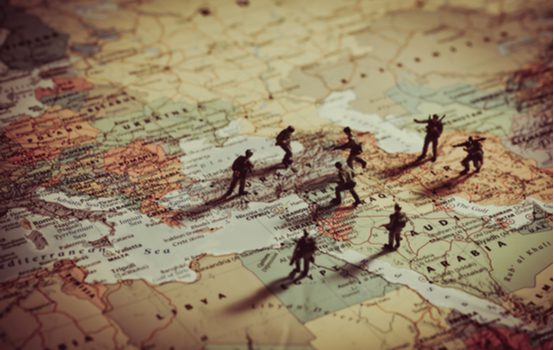Where Is This ‘Post-American Middle East’ You Speak Of?

Richard Haass comments on news from the Middle East:
Israeli airstrikes in Syria, Saudi continuation of the war in Yemen, Turkey preparing to attack Syrian Kurds, Assad in power and Isis anything but defeated, Iran expanding its regional reach, Russia the most influential external power: welcome to the post-American Middle East.
— Richard N. Haass (@RichardHaass) December 26, 2018
Some of these claims are very questionable, but what makes Haass’ comment truly bizarre is the idea that examples of military action by U.S. clients and allies are proof that the Middle East is now “post-American.” The U.S. has supported and continues to support the Saudi coalition war on Yemen. Washington has given at least tacit approval to Israeli strikes inside Syria for many years. Turkey has attacked Kurdish groups outside its borders for more than a decade. All of these states are clients or allies, and they are acting with the indulgence and in some cases the active assistance of our government. If this is a “post-American” region, what would one heavily influenced by the U.S. look like? There is something truly perverse about “analysis” that treats evidence of extensive U.S. involvement in the region as proof of its opposite.
Several of Haass’ other statements are also very odd in light of his conclusion. Assad has now been in power for almost two decades. When did his continued hold on power become proof of a “post-American Middle East”? Iran significantly expanded its “regional reach” following the U.S. invasion of Iraq. Did Haass think that the Middle East was “post-American” then? Outside of Syria, it is difficult to show much that supports the claim that Russia is “most influential external power.”
A “post-American Middle East” would be significantly different from the region we see today. It would have its own serious problems and conflicts, but it is very difficult to conclude that the peoples of the region would be worse off than they have been with constant U.S. meddling in their affairs for the past several decades. Haass wants to make it seem as if the region’s current woes are the product of a “post-American” order when the reality is that many of these conflicts have been stoked and encouraged by U.S. policies. That allows him and other proponents of continued meddling in the region’s affairs to spin deeper U.S. involvement as something other than a cause of many of the region’s ongoing problems.
Comments